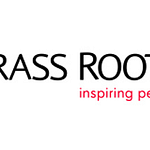Mentoring comes with a wide variety of benefits, among which engagement features highly and is regularly referenced. But why is this and how can organisations ensure that they are fully utilising their mentoring schemes to the best of their abilities?
In order to understand the true value of mentoring for employee engagement, it’s important first to have a solid understanding of mentoring. Mentoring, simply put, is the act of one individual sharing their knowledge, skills and experience to help another individual to grow and progress. It’s often confused with coaching, buddying systems and training. Mentoring though, is typically led by the mentee (the individual who is receiving mentoring) and a mentoring relationship will usually last for a longer period of time – such as 6 months. A mentor shares their own experiences, to help an individual with career progression, workplace challenges and self-development.
So, how can mentoring programmes and schemes help to engage employees? Well, there are a few reasons why there is a correlation and resulting impacts.
A Channel of Support
The first and most notable reason is that mentoring often offers vital support which can not only engage an employee but also help to significantly reduce employee turnover too. Yes, that’s right, mentoring can help an organisation to retain employees! By offering an individual with a mentor, you are giving them a further channel of support to deal with workplace challenges, learn, develop and grow, all of which are a significant help in employee engagement. As for the employee retention aspect of mentoring, the primary cause of this comes down to one of the largest reasons why an individual typically leaves an organisation. Around 50% of all individuals who leave an organisation will do so because of management conflict. Adding a mentor can offer considerable counterbalancing support.
Mentoring to Learn
Mentoring is also widely recognised as a fantastic way for employees to learn an extensive array of skills – both industry specific and soft-skills. Learning vital skills, such as interpersonal skills, presentation training, management skills and general industry insights can all come from mentoring. And it isn’t just the mentee who can learn from the mentor either. Mentors often learn a lot from mentoring other individuals – both in refreshing their own understanding of topics and skills but also in learning how to deal with challenges, helping a mentee to develop and the interpersonal and management skills often required to be a great mentor. Being a mentor has several similar traits as being a manager. This is why mentoring is sometimes considered, by organisations, as a great first step on the management ladder.
Additional Responsibilities
Both for a mentor and mentee, there are additional responsibilities associated with the roles, in a mentoring relationship. For a mentor, the responsibility to provide effective support and offer seasoned advice is a significant responsibility. For the mentee, it is their responsibility to plan for the mentoring meetings, their objectives and goals, and to manage the mentoring relationship. In both cases, these added responsibilities can be a great way of helping to ensure engagement with your employees.
Wider Organisational Understanding
It’s well known that in larger organisations, employees will often have a very vague understanding of different departments and job functions. The individuals they typically connect and engage with are within their own department or office location. By having a mentor in a different department, office location or job function, you can help employees to really explore a far wider range of roles and functions, potentially helping them to find more engaging opportunities and to learn more about the objectives of the business. Having a wider organisational understanding is a great way of helping to improve cross-departmental employee engagement and may well also further contributed to employee retention.
So how can I setup a mentoring programme?
Mentoring programmes and schemes are relatively easy to setup. Particularly now, with the increase of technology to support them. Long gone are the days where you have to manually match mentors and mentees, track their progress and chase them with follow-up emails. Technologies like PushFar’s mentoring software are a cost-effective way to roll out mentoring schemes at scale to a wide range of employees and help them to find the most appropriate mentoring relationships available. Furthermore, once an individual has found a suitable mentor or mentee, you can ensure they are staying engaged by tracking mentor meetings and goals, as well as easily collating feedback.
Author Bio: Ed Johnson, Co-Founder and CEO PushFar
www.pushfar.com
Photo Credit: NEXT Academy on Unsplash




